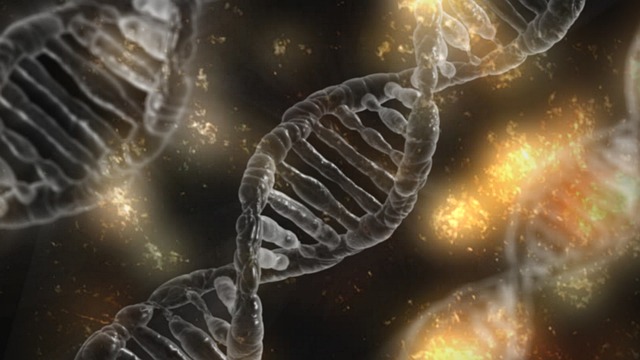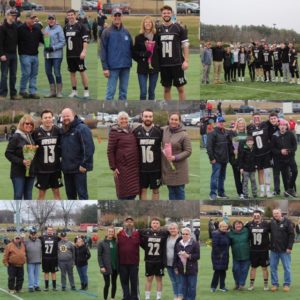By Kevin Praik
March 7, 2019
SRI LANKA – In the small South Asian country of Sri Lanka, a young boy is destined to change the world.
The boy’s name is Rakitha Malewana. He grew up in a single-parent household with his older brother. Their mother is a science teacher at a Sri Lanka Sri Lankan high school. Rakitha went to the same high school his mother taught at. He is 13 years old at this point. 
In general, South Asian parents are strict and want their children to focus solely on their education. Rakitha said he thinks strict parenting, “comes with traditional background of our countries.”
Rakitha believes Sri Lanka is similar to other South Asian countries in terms of tradition. “We are bonded by so many rituals,” Rakitha said.
In Sri Lanka, the only way to get a scholarship to a university is through education There are no scholarships given out for athletics or any other extracurricular activities.
This leads to school students not participating in extracurricular activities. Everything is hyper-focused on education.
“In order to produce a balanced person we need to have a balanced situation with education and extracurricular activities,” Rakitha said. “Sadly, our education system is not promoting that.”
In Sri Lanka, there are two years of high school. Everything leads up to one national exam which basically makes or breaks your future.
“You have to study four major subjects and it’s [the high school curriculum] two years long,” Rakitha said. “At the end of the two-years, you have to face this exam. It all depends on this exam. If you messed-up — sorry.”
In the classroom, Rakitha is barely there. “In Sri Lanka, we do not have this policy about strict attendance,” he said.
“I was the president for a couple of societies and clubs… I was [on the] gymnastic team and I did long-distance athletic,” Rakitha said. “My event was 5000 meters. I did that and a lot of [medical] research.”
“My school attendance I say was 100%, but my class attendance [was] so bad,” Rakitha said.
“I did terribly in school because I did not care,” Rakitha said.
Ultimately, Rakitha passes the national exam with a good grade. He gets into one of the two highest-ranking universities in Sri Lanka. Then, Rakitha drops out. Later on, Rakitha gets into the only other high-ranking university in Sri Lanka. Again, Rakitha drops out.
“I dropped out of college not because I was not capable. For instance, by the time I was dropping out I had a near 4.0 GPA,” Rakitha said. “[college] is not my thing.”
“What I believe is though I don’t have the knowledge, what I’m doing is trying to read each and every possible resource… in order to acquire that knowledge to conduct my [medical] research,” Rakitha said.
Rakitha is attending another college in Bangor, Maine, USA. He is a transfer-student at Husson University. His transfer credits make him a junior and he is majoring in biology.
“Here I am learning a lot of things. I don’t (Rakitha hesitates before continuing to speak) say it is a waste of time,” Rakitha said. “I know that if I am focusing on a particular research that I’m interested in by the I can contribute all the time I am giving to my degree to that research, I am way more ahead.”
Rakitha understands the curriculum he is in is not designed for people like him who prefer to teach themselves by reading.
“I am kinda like a person who likes more practical life. To do rather than sit in a classroom,” Rakitha said. “I love to be in the lab and work. I love being in the field and working with people.”
“I started doing medical research when I was a high school student,” Rakitha said.
In 2012, Rakitha founded a non-profit organization called, Ideanerd Sri Lanka. According to the organization’s website, its mission is, “building, leading, and sustaining a collaborative environment in which students can present their innovative ideas on today’s challenges and creating a more sustainable world for tomorrow.”
Rakitha also co-founded another non-profit organization focused on health and social services.
While in high school, Rakitha develops a successful treatment of Dengue Fever in its first stage. His findings on Dengue Fever leads him to become the national winner at the Sri Lanka Science and Engineering Fair in 2013.
Rakitha would go on to world’s largest international pre-college science and engineering fair. There are thousands of high school students from across the world there.
Within a calendar year, he successfully develops a treatment for Leukemia in its first stage. His findings take him to the Sri Lanka Science and Engineering Fair where he repeats as the national winner.
He goes on once again, to the world’s largest international pre-college science and engineering fair.
His findings on Leukemia also earn him honors from the Sri Lankan Minister of Health, Nutrition, and Indigenous Medicine. The organization called his medical research of the best in 2013.
Rakitha is the first person to win an international gold medal in science in the history of Sri Lanka. Rakitha also won an international bronze medal in science and another international gold medal.
Around this time, Rakitha develops a successful therapy for the first stage of HIV/AIDS. Rakitha continues to primarily work with people who have HIV directly.
Rakitha’s work with AIDS took him to the continent of Africa. “Africa is completed different [than Sri Lanka] and is one of the best places I’ve ever visited,” Rakitha said.
“If you step through an African village… most of the time, young girls around ages 12 to 13 are pregnant,” Rakitha said. “It’s a common thing in their societies.”
Rakitha goes on to say by the time they’re 13 to 14 years old they get married. Soon after, they start having their own lives.
“It’s a really diverse experience,” Rakitha said.
“At the very beginning [of my work with HIV/AIDS], my whole family and extended were totally against it because of the common reason,” Rakitha said. The “common reason” being his family did not want him to get HIV/AIDS.
Rakitha’s work and finding with HIV caught the attention of royalty. In 2017, he was a recipient of the Queen of England’s Young Leaders Award.
In the same Rakitha is recognized by Forbes and added to the 30 under 30 list.
His work with HIV also to the President of Sri Lanka honoring him in-person with an award.
With all these accomplishments and achievements most of which happened before he turned 20, Rakitha develops a reputation. “Most people think, ‘well okay this guy is smart’,” he said. “ It is not about being smart, it is about hard work.
“I’ve worked so hard… most of the days I sleep around three to maximum four hours,” he said.
When asked how he helped change the culture for high school students trying to get into medical fields Rakitha said, “It as really hard because when I published my first work and there were so many critics from professionals. They didn’t even look at my findings. The only things they looked for were my paper qualifications.”
Numerous older medical professionals did not think he was qualified enough to be doing this level of medical research.
In his work with HIV/AIDS Rakthia came to a realization. “Since I’m working with HIV positive individuals, I know that they are normal people.”
“I do not see any difference in HIV positive individuals. If there were an HIV positive individual here, I would treat you and him in the same way,” Rakitha said. “People are people”.


